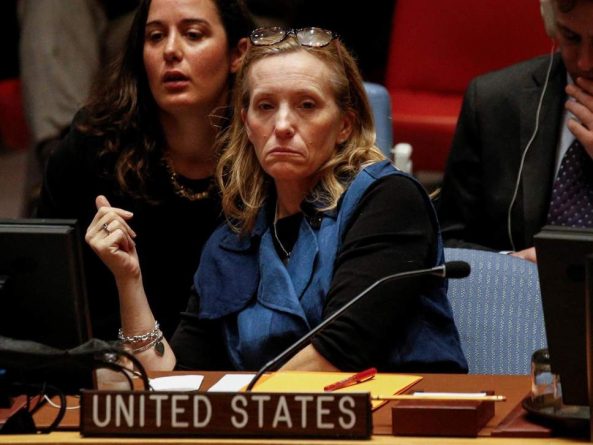US only country in the world to vote against work of UN refugee agency


Orinoco Tribune – News and opinion pieces about Venezuela and beyond
From Venezuela and made by Venezuelan Chavistas

The US has rejected a United Nations resolution on the work of the organisation’s refugee agency (UNHCR), amid American concerns over the document’s provision for immigrants and refugees.
It was the only country to block the resolution on Tuesday, with US ambassador for economic and social affairs Kelley Currie saying it would not accept the draft text because parts of the document did not reflect America’s “sovereign interests”.
One of the main issues was around limiting the length of detention of asylum seekers.
Ms Currie told the committee that while the US valued much of what was contained in the resolution and an attached Global Compact on Refugees, some concerns remained unaddressed.
“We regret that the resolution before us today contains elements that run directly counter to my government’s sovereign interests,” said Ms Currie, citing references to a UN commitment to a global approach to dealing with refugees and migrants.
“We also have serious concerns with language … regarding alternatives to detention and the ‘need’ to limit the detention of asylum seekers.
“We will detain and prosecute those who enter US territory illegally, consistent with our domestic immigration laws and our international interests.”
The Trump administration sparked outrage at home and abroad when details of its “zero tolerance” immigration policy emerged, which included separating children from their parents when they cross the US-Mexico border.
In July this year, the UNHCR’s assistant high commissioner Volker Turk said he hoped the study would result in detention limits being put in place, with detention only used as a “last resort”.
“If, indeed, detention is unavoidable and it is the last resort that it is meant to be, there needs to be a time limitation put to it,” he said.
The annual resolution on UNHCR’s work has generally been approved by consensus for more than 60 years. But this year Washington asked for a vote.
Despite being rejected by the US, the draft text was adopted by the General Assembly human rights committee with 176 votes in favour, while there were three abstentions and 13 countries which did not vote.
It is now due to be formally adopted by the 193-member General Assembly in December.
UN General Assembly votes usually require a simple majority to be carried, or two thirds if deemed an “important issue”, and they are non-binding for member states.